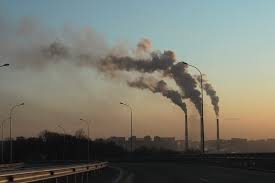
Over the past year, our planet has experienced a tangible demonstration of the pervasive impacts of climate change, manifesting in a significant increase in extreme heat days worldwide.

Reports released by the Red Cross Red Crescent Climate Centre alongside Climate Central and World Weather Attribution reveal that, on average, each global inhabitant endured an additional 26 days of abnormal heat compared to what would have likely occurred without human-induced climate change.

The year 2023 has been earmarked as the hottest year on record, with every continent, except Antarctica, wrestling with the ramifications of 76 documented heatwaves.

Nearly 80% of Earth’s population felt the sear of at least 31 days of atypical warmth, evidence of the relentless march of global warming.

The findings underscore the alarming trajectory of climate trends, with certain regions like Colombia, Indonesia, and Rwanda grappling with over 120 additional days of extreme heat, highlighting the disproportionate impact on various parts of the world.

These extremes are not just numbers on thermometers; they signify a daunting toll on human life and natural systems. In Bangladesh, a staggering 57 out of 64 districts have been blighted by scorching temperatures, affecting over 120 million people.

Myanmar, Nepal, and the Philippines have similarly battled intense heatwaves, with Myanmar registering a record-breaking high of 48.2°C.

Such temperatures have profound implications for public health, agriculture, and infrastructure, exacerbating pre-existing conditions and disproportionately affecting the most vulnerable populations.

It’s not merely the land that’s simmering; ocean temperatures are soaring too, setting the stage for an extraordinarily active Atlantic hurricane season. The culprits of these extremes are identified: the relentless burning of fossil fuels, amassing heat-trapping gases in our atmosphere.

Experts employed peer-reviewed methods to ascertain that human activities are unequivocally the architects of this warming trend. The stark reality of our actions is etched into the 1.1°C global surface temperature increase above pre-industrial levels, with predictions of further spikes contingent on future emissions.

Despite variations in warming, the consensus is unshakable – our collective footprint has left an indelible thermal scar on the planet.

Mitigation efforts are manifesting globally, with early action protocols and heat action plans being developed and deployed. Bangladesh and Nepal are at the forefront of these endeavors, offering a blueprint for cities worldwide.

National Societies of the Red Cross and Red Crescent are championing initiatives to brace communities against heat’s deadly grip, providing early warnings, safe drinking water, and cooling stations to those in jeopardy.

In combating this escalating threat, it becomes apparent that every degree of effort counts, every action plan matters, and every cooling station can save lives.

The enduring goal remains: to mitigate the impacts of climate change and to adapt our societies to weather the storms and heat that are already at our doorsteps.
Relevant articles:
– Climate change added nearly a month’s worth of extreme heat in past year – Report – Red Cross Red Crescent Climate Centre, Red Cross Red Crescent Climate Centre
– Climate change added a month’s worth of extra-hot days in past year, Deccan Herald
– Climate Change: Global Temperature, climate.gov
– Climate change caused 26 extra days of extreme heat in last year: Report, CNA
